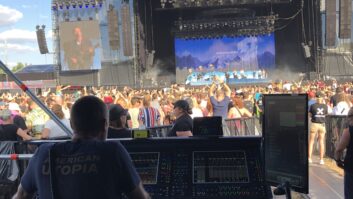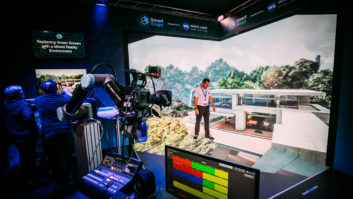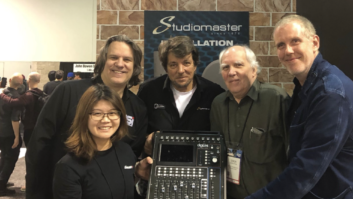Like other parts of the AV industry, the professional audio sector has been hit hard by the current electronic components shortage. It has not helped that sound equipment manufacturers have found themselves low down the supply chain behind larger industries, such as car making, the military and aerospace, which are perceived to be more crucial to the world economy.
The research arm of investment bank JP Morgan highlights the auto industry as among those most affected by chip shortages. The lockdowns forced on the world by Covid-19 were a significant factor, with the complete shutdown of the Chinese electronics sector at the end of 2019 beginning to make a serious impact on the European and US markets by February 2020.
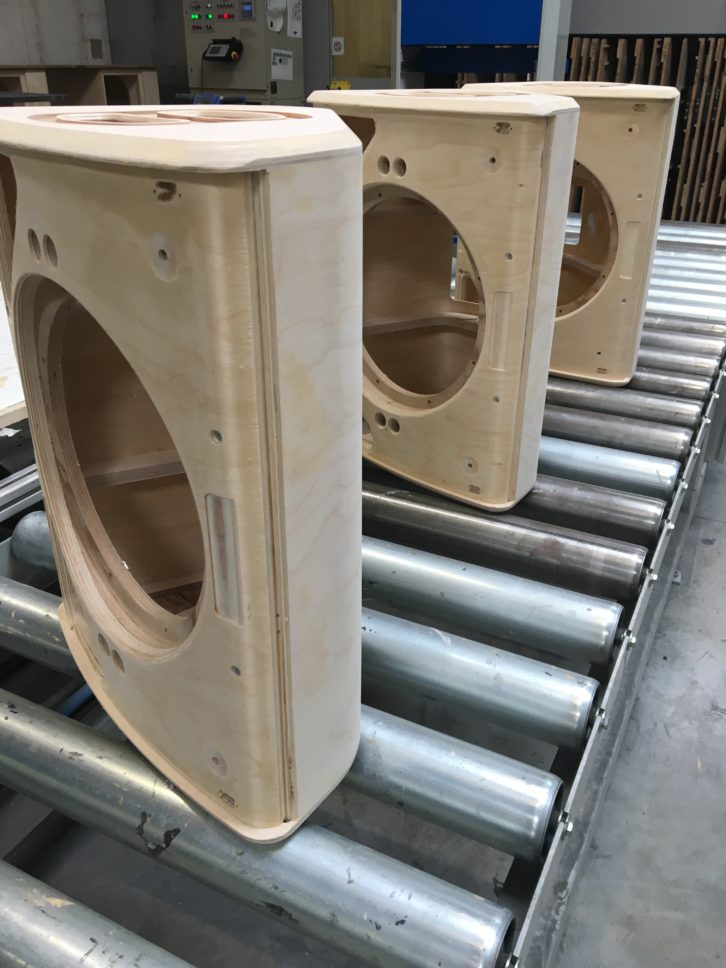 This, however, is only one part of what JP Morgan Research describes as a “perfect storm”. The war in Ukraine has exacerbated an already fragile situation but difficulties in obtaining not only chips but the means to manufacture them has brought circumstances to a head. “It is harder to get components but also the raw materials,” comments Andy Simmons, UK sales manager for NEXO. “Coming out of Covid there is a requirement for more equipment, due to new live events, but manufacturers are having a hard time making it. As a result we have seen a huge rise in business for repairing older equipment.”
This, however, is only one part of what JP Morgan Research describes as a “perfect storm”. The war in Ukraine has exacerbated an already fragile situation but difficulties in obtaining not only chips but the means to manufacture them has brought circumstances to a head. “It is harder to get components but also the raw materials,” comments Andy Simmons, UK sales manager for NEXO. “Coming out of Covid there is a requirement for more equipment, due to new live events, but manufacturers are having a hard time making it. As a result we have seen a huge rise in business for repairing older equipment.”
SHARED FRUSTRATION
The frustration in seeing the live concert and event market return and grow, resulting in an immediate requirement for new equipment, is shared by Tony Szabo, director of application project for EMEA at L-Acoustics. “We are seeing huge demand, which we are finding hard to meet,” he says. “This has been one of our best years but we would have done more if we hadn’t had supply issues. Some people are thinking it could be less next year and are talking up a recession but the companies we speak to have so much on the books, we think it will be strong.”
Increased demand for equipment will in turn call for more components and with the current shortages, which could have even more of a knock-on in terms of supply shortages. While the professional audio sector does rely on China, Japan and Korea for chips, some manufacturers assemble their own components and build other items such as housings and cabinets. RCF makes the majority of its products in Italy but, as UK director of sales Dean Davoile explains, this does not mean the company has been free from problems: “In May we couldn’t get hold of grilles. Then it might be something else, such as the components for crossovers. This industry is so far down the food chain compared to the automotive and consumer electronics sectors. If they want something [like an electronic component], they can get it, which has an impact further down the line.”
Many pro audio manufacturers, particularly the larger corporations, tend to work along the lines of ‘just-in time production’. This is the basis of the wider manufacturing sector, where companies produce items to meet demand as it arises, rather than stockpiling pre-manufactured products. This approach is regarded as more cost-efficient, as well as reducing storage costs and eliminating waste.
RAW INVENTORY
An audio manufacturer that does not work this way is LEA Professional. When the amplifier specialist was founded four years ago, it chose to start out with what vice president of marketing Brian Pickowitz describes as “millions of dollars worth of raw inventory”. This, he explains, was part of the company’s business model, as was having only a small number of components to deal with. “I don’t have an engineering team running around figuring out what they’re going to do with 4000 different things,” he says. “They’re figuring out what we’re going to do with 20 different items. If you go back before Covid and the supply chain issues happened, part of our business model was to have a large amount of raw parts. When Covid and the resulting supply chain problems did happen, we still had a good amount of volume.”
Like many other manufacturers, LEA has dealt with the shortage of supplies by either reworking products or using alternative components. “We’ve definitely done that with our new products,” confirms Pickowitz. “We’ve designed things on the understanding of what was going to be available when it came to release them. You have to figure that out on a part-by-part basis but we are solving those problems nine months from now, rather than, like some companies, trying to figure out how to keep the manufacturing line running today.”
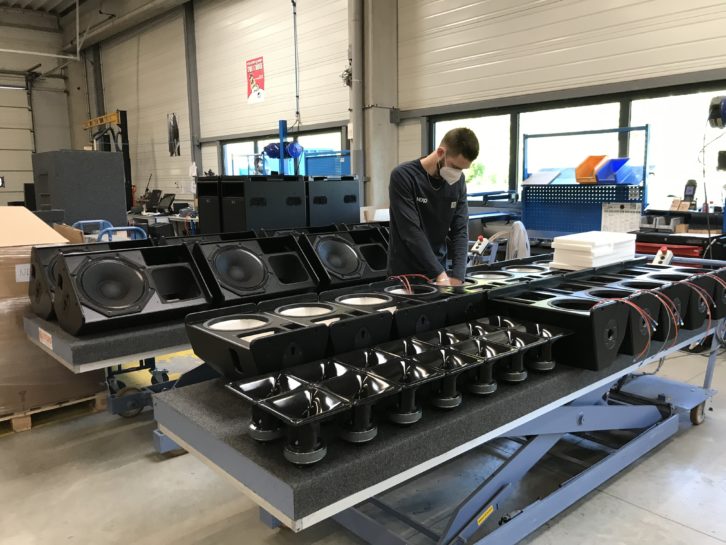 Pickowitz says LEA is beginning to see improvements in the situation, with some easing up of shortages. “There is now an abundance of parts we couldn’t get three months ago,” he explains. “I think this is due partly to the companies that were ‘spot buying’ [purchasing to meet an immediate requirements rather than long-term procurement] marking the price up so exponentially that nobody bought them. Now you’re starting to see those prices come down because those companies are sitting on inventory. It’s not back to where it was prior to 2020 but we are seeing it ease a little bit. I definitely see us having to struggle with this through at least the first half of 2023.”
Pickowitz says LEA is beginning to see improvements in the situation, with some easing up of shortages. “There is now an abundance of parts we couldn’t get three months ago,” he explains. “I think this is due partly to the companies that were ‘spot buying’ [purchasing to meet an immediate requirements rather than long-term procurement] marking the price up so exponentially that nobody bought them. Now you’re starting to see those prices come down because those companies are sitting on inventory. It’s not back to where it was prior to 2020 but we are seeing it ease a little bit. I definitely see us having to struggle with this through at least the first half of 2023.”
CHIP DEPENDANT
The now high use of computer and IP-based technology in professional audio equipment has made manufacturers increasingly dependent on electronic components and chip sets. As a result, companies such as Audinate, developer of the Dante audio over IP/Ethernet protocol, have been particularly affected by the supply problems. In Audinate’s specific case, the focus has been on the Dante Ultimo chip, although the company has experienced shortages with other components as well.
“We are negotiating fast and furious to get more allocation for the chips and parts that we have today,” comments Josh Rush, chief marketing officer at Audinate. “Ultimo falls into that category where we’re representing all the manufacturers that license Dante in lobbying, in this case, NXP [semiconductor manufacturer] for more allocation. We are getting shipments of Ultimo but it’s not meeting the overall demand that is in the market.”
Rush adds that Audinate is also talking to other chip suppliers, including Xilinx and SkyWorks Solutions (previously Silicon Labs), to secure supplies for its other products. It has also announced replacement products – with the Brooklyn 2 module being replaced by the Brooklyn 3 and Fremont 3 replacing the Dante AV Freemont unit – and is additionally moving some systems, such as the Dante Embedded Platform and IP Core, to software-based operation. “We’ve been pursuing a migration to software solutions for Dante,” Rush confirms, “which can run on a whole variety of different parts. Our manufacturers have been actively working on other ways to get Dante into their product. The software solutions have been incredibly popular over the last year because they’re not as dependent on a single chip.”
While the pandemic and how it affected manufacturing were major causes of the supply crisis, Rush acknowledges that other factors also played a part. “The first reason for some of the constraints on supply was the impact of Covid,” he says. “Some factories had to shut down [or] abide by social distancing rules, spacing their staff out, which meant they were getting less throughput. But that wasn’t just the chip companies, it was all the different parts of the supply chain. There was a constraint on packaging and I also heard about a shortage of cleaning fluid. so there was another problem there.”
SILICON SUPPLIES
Dante’s main competitor in AoIP is RAVENNA, which says it has not been directly affected by the supply problems although the COMi.MX RAVENNA SoM card is no longer available due to shortages of Spartan6 FPGAs. “A successor board is in the making,” says Andreas Hildebrand, senior product manager with RAVENNA developer ALC NetworX. “Some of our partners have been severely impacted by shortages in the supply chain – mainly silicon – which has led to difficulties supplying finished products, while others have not experienced any significant impact as they are using silicon that is not, or is only slightly, affected by the issues.”
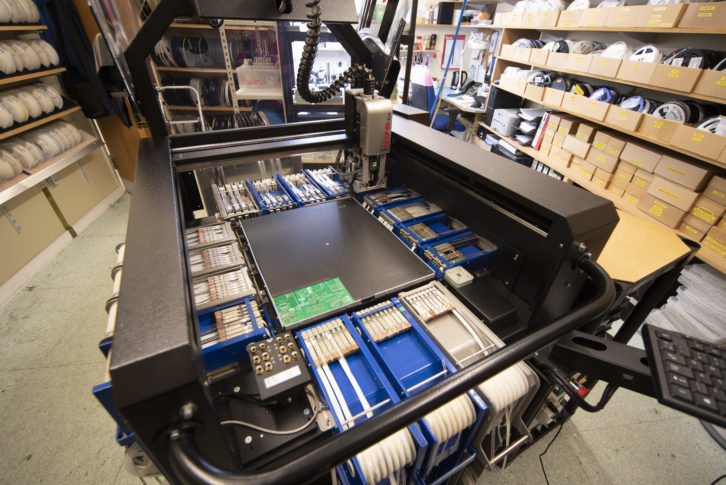 Hildebrand identifies the causes of the she shortages as “fire [at the AKM semiconductor facility in Japan in October 2020], war, Covid and on-demand-supply chains instead of stock-keeping”, while also acknowledging that some in the business have been trying to profit from what is a difficult situation: “We have noticed – and it has been reported by our partners – excessively increasing prices on certain types of silicon with high demand when supplied by brokers.”
Hildebrand identifies the causes of the she shortages as “fire [at the AKM semiconductor facility in Japan in October 2020], war, Covid and on-demand-supply chains instead of stock-keeping”, while also acknowledging that some in the business have been trying to profit from what is a difficult situation: “We have noticed – and it has been reported by our partners – excessively increasing prices on certain types of silicon with high demand when supplied by brokers.”
This opportunism is confirmed by Marc Wilson, managing director of intercom, networking and esports equipment manufacturer Glensound: “There are many outrageous examples of inflated pricing in our industry and we are not just talking double or triple the prices. A four-channel LED driver that we use in our Divine loudspeaker was typically 45p. Earlier this year they were £15 with a minimum order quantity of 5000.” The way round this, Wilson says, was to source a reasonably priced two-channel LED driver and use two instead, which was achieved through a redesign, changing the code and producing a new circuit board.
Part of Glensound’s business model also involves small volume custom design, which calls for it to hold approximately £1 million in component stock. “The AKM factory fire was the start of the component issues for us and it just snowballed from there,” Wilson says. “When shortages started to appear we were in a good position [but] our stock has eroded over time and much of what has been replaced is at a considerably higher value than previously.”
When Glensound introduced AoIP products it opted for Dante but earlier this year added RAVENNA to its portfolio after experiencing problems in sourcing Dante components. “We introduced Ravenna modules at IBC to offer our customers an alternative,” Wilson explains. “With uncertain supply on Dante modules we wanted to make sure our customers had options on network units, especially when some of our customers were using their Dante units in AES67 mode anyway.”
In August, JP Morgan Research predicted the shortage was nearing an end, with more chips appearing by the “second half of 2022”. However, it acknowledges that what will be available “may not be of the right type to satisfy all demand”. More pessimistically, Volkswagen is reported to believe that semiconductor supply “is unlikely to meet auto industry demand until 2024”. This is not good news for the audio sector but as it has already proved itself to be adaptable and inventive, perhaps more innovation may come out of this difficult time.

